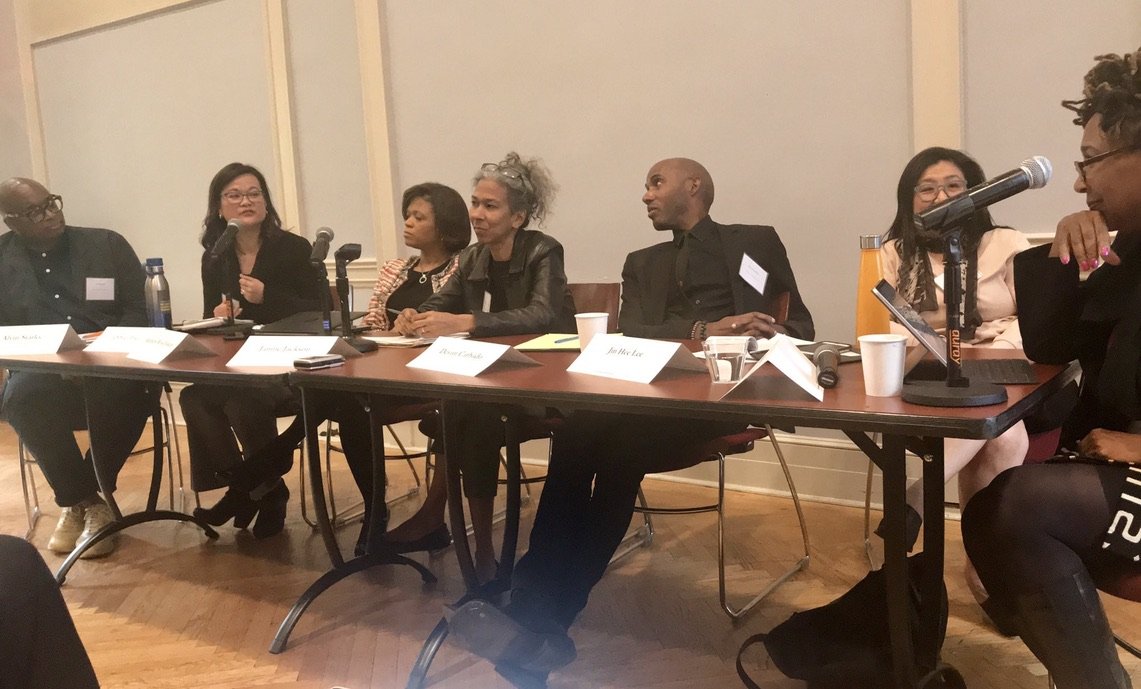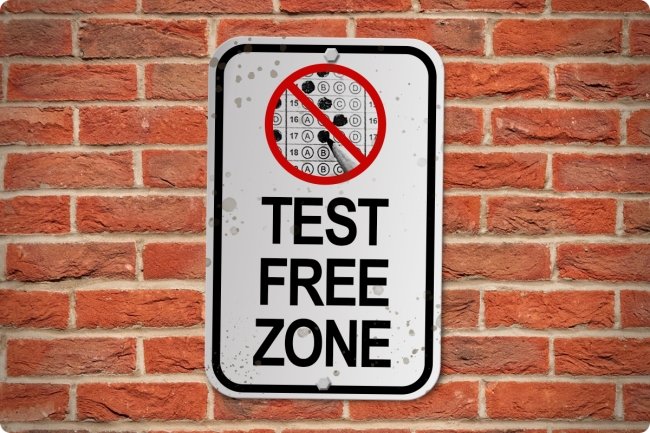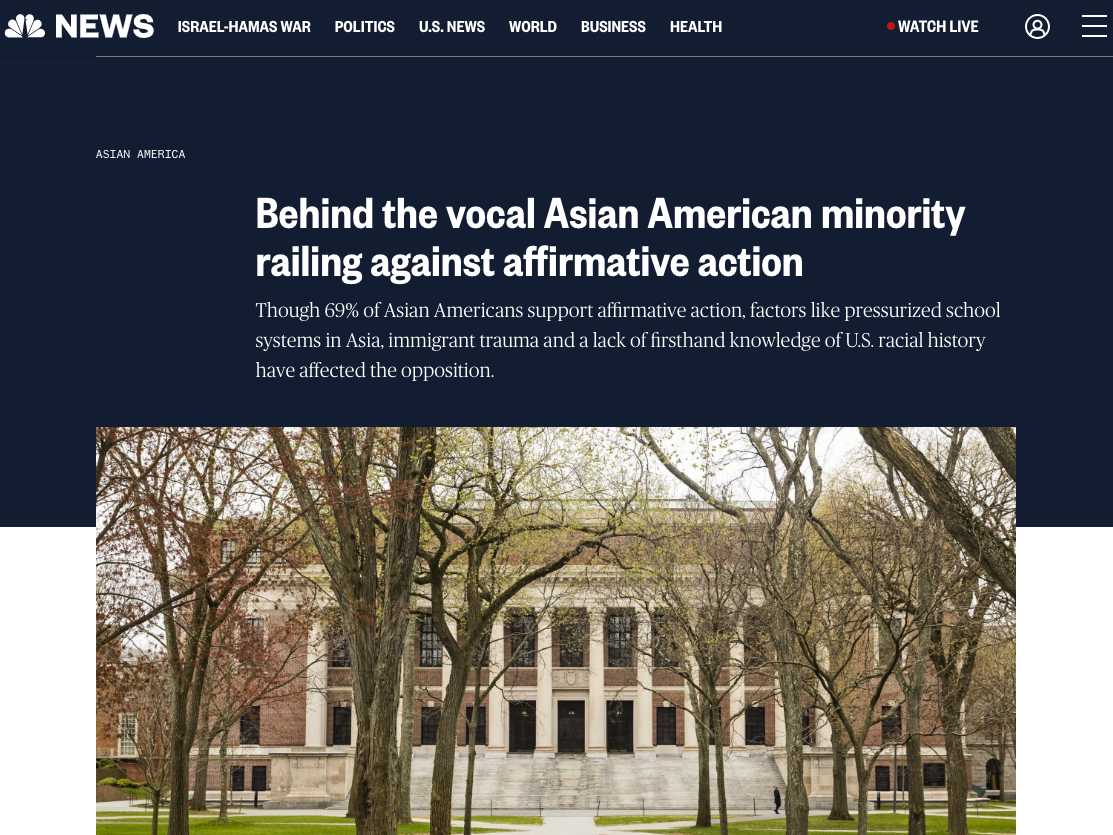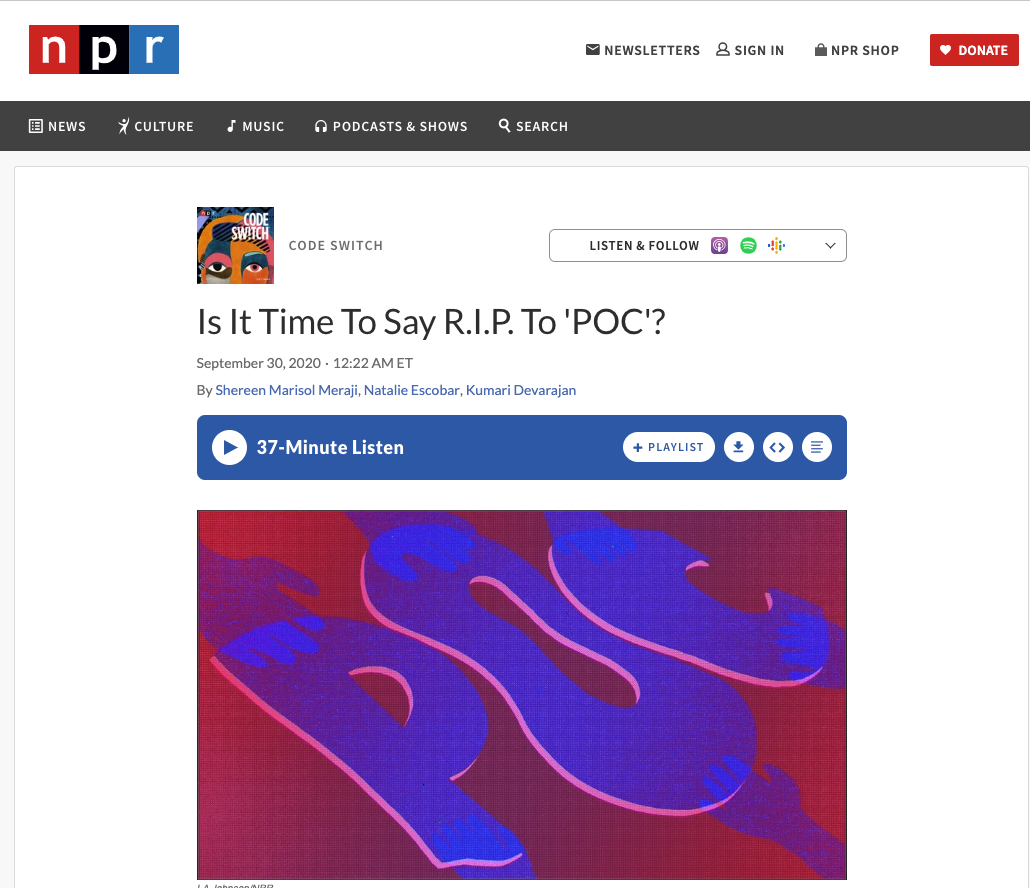Press
Q&A with Bianca Vandenbos
Author attends Guest Speaker Event in Ahmanson Lecture Hall • November 14m 2024
Yale, Princeton and Duke are Questioned over Decline in Asian Students • September 17, 2024
Asian Americans see mixed results in enrollment after end of affirmative action • September 12, 2024
OiYan Poon hosts book talk on affirmative action, Asian American identity • September 23, 2024
Black enrollment falls at Columbia, top schools after affirmative action ruling. Now what? • September 21, 2024
An Asian American Scholar Explores the Admissions Debate that Divided Her Community • May 2, 2024
For Asian Americans, affirmative action is complicated • April 29, 2024
Test-Free Admissions: Why Wait? • Julie J. Park & OiYan Poon, Inside Higher Ed • September 25, 2023
Affirmative action divided Asian Americans and other people of color. Here's how • Ayesha Rascoe, NPR • July 2, 2023
How Asian Americans got wrapped up in the affirmative action debate — and why many want out • Lisa Philip, WBEZCHICAGO • June 7, 2023
Chicago professor among pro-affirmative action demonstrators at Supreme Court • ABC7 Eyewitness News • October 31, 2022
Behind the vocal Asian American minority railing against affirmative action • Kimmy Yam, NBC News • November 1, 2022
What’s next after the end of affirmative action? • Micah Yason, WBEZCHICAGO • July 17, 2023
Is It Time To Say R.I.P. To 'POC'? • Shereen Marisol Meraji, Natalie Escobar & Kumari Devarajan, NPR • September 30, 2020
Critical Race Theory: A Brief History • Jacey Fortin, New York Times • November 8, 2021
Is It Time To Say R.I.P. To 'POC'? • Shereen Marisol Meraji, Natalie Escobar & Kumari Devarajan, NPR • September 30, 2022
#RaceClass Podcast Ep. 30 "Asian American is Not a Color," a Conversation with Dr. OiYan Poon
They Call Us Bruce Podcast: They Call Us OiYan A. Poon
Code Switch on NPR
Is it time to say R.I.P. to ‘POC’?
On the Code Switch podcast, we often use the term "people of color." And it's not something we thought a ton about until the Black Lives Matter protests reignited in May, and we saw a refrain across social media, particularly among Black people: Stop calling me a person of color.
Many felt that people using the term POC were (intentionally or not) sidestepping the truth: that certain effects of racism — things like mass incarceration, police violence, inability to access good health care — disproportionately affect Black and Indigenous people. Not all "people of color."
The popularization of BIPOC only furthered the debate. Was this relatively newer term highlighting the particular experiences of Black and Indigenous folks? Or was it an homage to wokeness with no real teeth?





















